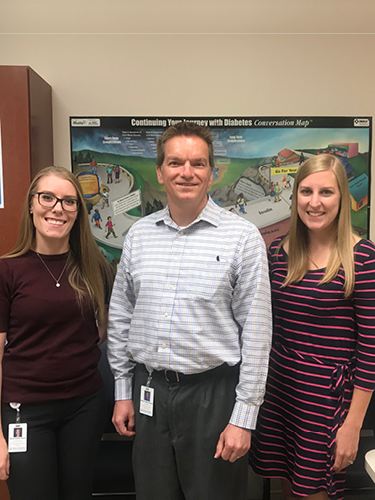Ambulatory Care Clinical Pharmacists Innovate in Response to Pandemic
Submitted By:
Whitney Aultman, Pharm.D., BCACP
May 22, 2020
In response to the COVID-19 pandemic, ambulatory care clinical pharmacists at State of Franklin Healthcare Associates (SoFHA) in Johnson City, TN, identified high-risk patients enrolled in their chronic care management (CCM) program (e.g., heart failure patients receiving loop diuretics, COPD patients receiving oxygen therapy) to better target their CCM outreach calls. They also found themselves responding to more drug information questions, especially as inquiries regarding specific medications related to COVID-19 treatment increased. Telehealth services were implemented in the SoFHA clinics, calling upon the clinical pharmacists to perform virtual patient visits with other providers. Meanwhile, SoFHA’s TennCare medication therapy management pilot has allowed the clinical pharmacists to enroll new patients over the phone now that the requirement for in-person enrollment has been suspended. These enrollments have increased the practice’s patient load and the volume of daily patient encounters now meets or exceeds pre-COVID levels.
ACCP member Whitney Aultman, Pharm.D., BCACP, SoFHA Clinical Pharmacist and Clinical Assistant Professor in the Bill Gatton College of Pharmacy’s Department of Pharmacy Practice at East Tennessee State University, commented on the impact of these changes. “We frequently receive favorable feedback from patients. They appreciate that we offer telehealth options and can provide frequent interactions with the healthcare team. They also know that we have a direct line to providers and are able to facilitate a quick resolution of many issues. Patients express their appreciation of our services by providing comments such as ‘nobody has ever explained that to me’ or ‘I never knew what that was for.’”
Whitney provides clinical pharmacy services at SoFHA in collaboration with colleagues Andrea Carter, Pharm.D., BCACP, and Rick Hess, Pharm.D., BCACP. Their patient-centered approach routinely includes reviewing individual medication lists, identifying drug-drug interactions, and questioning patients about the indications for their medications and the specifics of each regimen. Whitney adds, “I think our services have really allowed patients to take ownership of their health, even in the midst of the pandemic.”